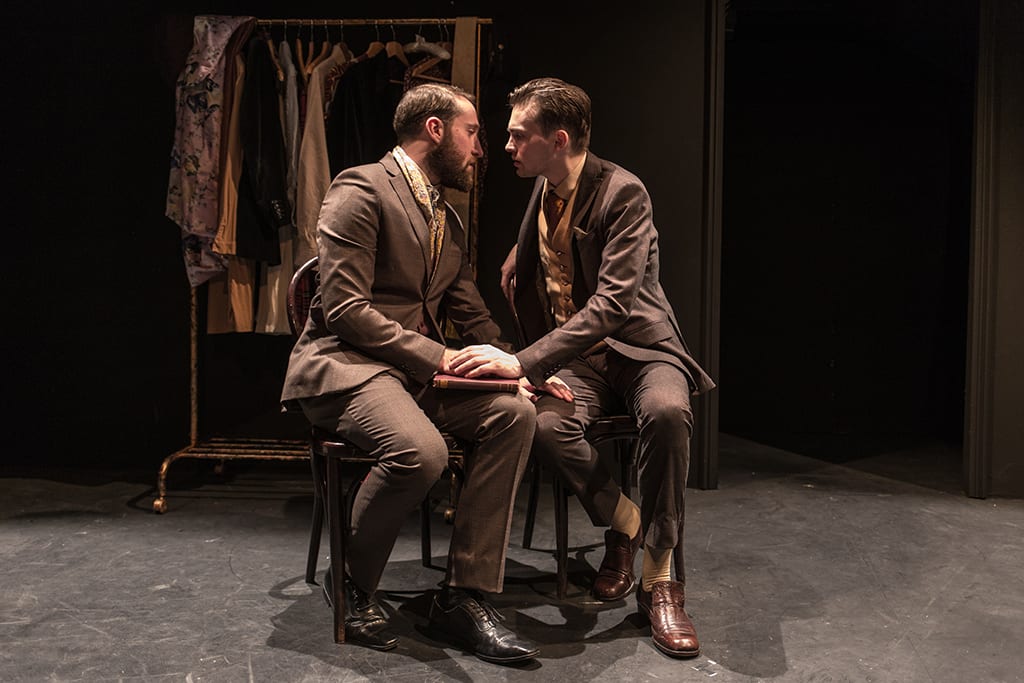The widespread discriminatory treatment of gay men throughout the twentieth century still has the power to make you gasp in disbelief at times. Tom Jacobson has taken a little known and particularly surreal and odd episode from American history and turned it into a two handed drama. In Los Angeles in 1914 the police department paid two actors $15 a head for each homosexual male that they caught performing acts in ‘the twentieth century way’ (a.k.a. oral sex). This name came about as the theory was that the new fangled zipper on trousers and improvements in genital hygiene had led to a new fashion for fellatio. Quicker, easier and more conducive to zipping up and running away than full sodomy, this was a ‘scourge’ that officials were keen to stamp out as they saw this as particularly morally repugnant. The actors’ job was to get gay men to unsuspectingly whip out their penises to perform sex acts at which point the actors would draw an X on said male member with indelible ink.
Pretty faced actor Brown (Fraser Wall) is anxiously waiting for a film audition in an ill fitting suit when he meets posturing and bombastic Warren (James Sindall). Bearded and seemingly debonair, Warren challenges him to an improvisation battle and the two flip in and out of characters, enacting scenes of seduction and entrapment. It’s a huge credit to the two actors that this is done with convincing style and aplomb. However, it’s a discombobulating presentation and one that becomes more meta-theatre as the play progresses. Is Warren teaching Brown the ways of the trade of procuring and tricking the unsuspecting or is this just a manifestation of their own homo-erotic relationship? Are they really the true life actors, actors, actors playing the actors or not actors at all? Is this a play, an audition, a reminiscence or facsimile of a play? The rate of change of character is sometimes bewildering and dizzying and after a short introductory pause there’s 80 minutes of solid verbal badinage.
This confusing mix of trickery hits and misses in equal measures. There are some bemusing scenes and witty lines with the descriptions of the Los Angeles dignitaries’ views on oral sex particularly amusing. There are also moments that should be poignant, such as the suicide of a kindly priest, but which instead get lost in the plays own tricks and devices.
Jacobson has written a clever piece about an intriguing moment in history but sadly one which slightly misses the mark and feels colder, less watchable and more in love with its own style than it should be.

